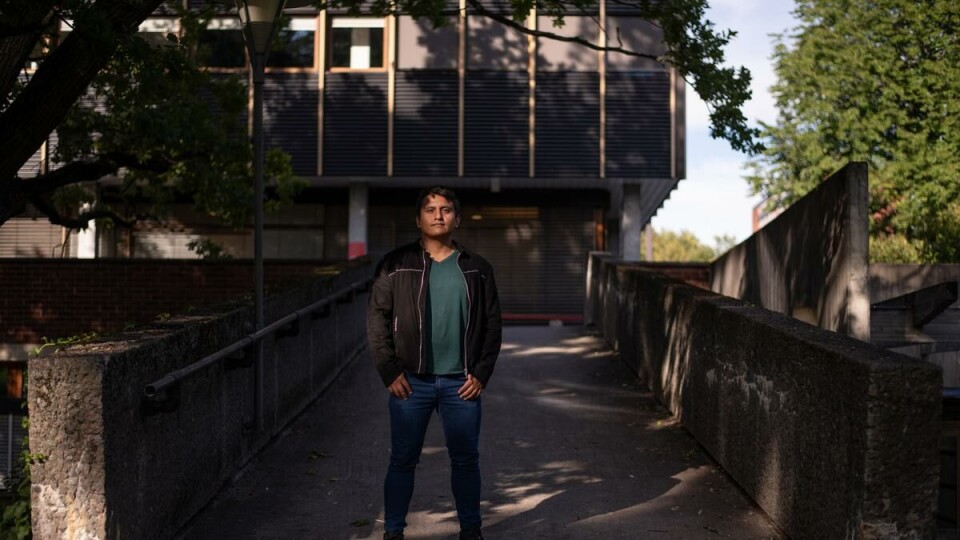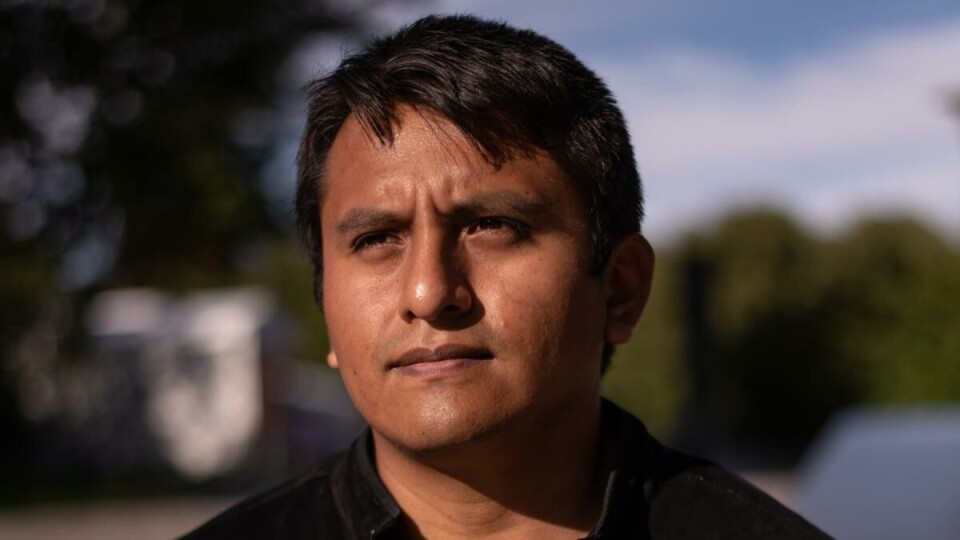Covid-19 effects show:

Internationals face complications upon arrival
Alfredo Ventocilla (26) is an international first-year Master student, enthusiastic to start his studies at the University of Oslo. For Ventocilla (26) the open borders mean that he can supplement the long hours of web-based learning with the experience of settling in Oslo. However, he explains that he felt a bit lost after arriving in Oslo and he thinks many international students did as well.
— Due to Corona infection control, I think they didn’t expect the arrival of new international students to Oslo until January 2021, he explained.
In the autumn of Corona, international students face multiple complications with starting their studies at Norwegian universities. The procedures were complex even before the pandemic hit, but now the universities have to adapt quickly to government regulations regarding travel, visa, health, and security advice.
The borders opened for Europeans in the course of the summer. Higher institutions in Norway and universities in most parts of Europe were given the green light to welcome students back to campus.
Facing exclusion
At each semester start, students are usually welcomed with events organised by the university and student groups which facilitate socialising as well as getting to know the new surroundings. Despite Corona, the universities in Oslo tried to facilitate activities to welcome new students. Especially international students can profit from early inclusion into studentship, but this year, they were clearly falling short.
— There was Fadderuka (buddy week) at my faculty, and we as new international students weren't offered to join, Ventocilla (26) explained.
— I felt this event was important since I could be more social and get familiar with the university before school starts and the buddies show you around and let you know other useful resources.

In addition to being introduced to the student life, international students need help with important issues such as their legal status as a student in Oslo, the requirements to apply for a part-time job, or how to obtain a tax number, health insurance and a bank account. The process to take care of these issues is not self-explanatory.
— It is already hard for newly arrived students because they have uncertainties of being in a new country, new city, new university and being surrounded by new people and a new language, said Ventocilla (26).
As a new student, Ventocilla (26) is overwhelmed through a mass of information that is put out on the university website. It is difficult to see what he needs to be aware of. Some information is missing, for example, how to get the public transport card, or advice on finding part-time work. He wonders where students are supposed to find such information.
Helping each other
Sanjana Chauhan (27) is another new international student at the University of Oslo. She is from India and plans to move to Oslo before January, if possible.
— I found that my fellow batchmates were more helpful than the university administration, she said.
The registration for subjects was problematic for her and her classmates and the issues only resolved shortly before the courses began. International students come with a lot of questions because they tend to begin their studies at Norwegian institutions after having studied in various institutions globally, she explained.
— When you join a new university you expect to be welcomed and accompanied. Even if students can figure out things on their own, there are a lot of people still confused on questions like registering for a course and the number of courses that you can register for, if you can withdraw from the exam, colliding classes and so on, Chauhan (27) said.
I found that my fellow batchmates were more helpful than the university administration
The universities are doing their best to facilitate digital teaching to their students, but this mode of teaching comes with difficulties. Chauhan (27) said that online sessions are especially hard for those who are in a different time zone because it is challenging to attend the classes just when they are happening.
She proposes that the teachers could have some assistance with the technical, digital part of the classes, so that the recording of lectures is ensured and not forgotten.
— It took me a while to understand the Canvas platform, and MineStudier, and now Leganto, and the other different pages. Maybe a bit of help would have been useful, said Chauhan (27).
Improvements in assisting and communicating with new students could have been done through an online buddy system, suggested Chauhan (27). Furthermore, it has been a simplistic view of the university to officially expect students to arrive only in January.
— Students are arriving on different dates: some are moving in January and some in September. I’m arriving soon and have no clue how to register for a bank account or verify with the police as a non-European student, said Chauhan (27).
Disappointment with communication
The new international student is disappointed with the support she received from the university.
— I want to think that it is because they have not read the news lately regarding the opening of borders after the 15th of July. It just feels that UiO is not taking into account all the students who are moving before January, argued Chauhan (27).
I want to think that it is because they have not read the news lately regarding the opening of borders after the 15th of July
Inter Universitas followed up on the issues expressed by new international students at UiO’s Department of Education Services as well as the International Student Reception (Knutepunktet).
International students’ first contact with the university is through the admission offices before the particular faculty takes on the responsibility in supporting the new students. The faculties had to take on responsibility in following up on students’ needs this year after the university switched to digital teaching.
Digital teaching, as a consequence of covid-19, is the main reason why international students are neither proposed, nor expected to arrive in Norway this autumn.
— We have guided those students who have contacted us and have traveled to Norway, with information about financing and entry regulations, said Hanna Ekeli, Director of Department of Education Services, the University of Oslo.
The most relevant information is updated regularly on the university’s website, for example on digital solutions and entry regulations to Norway. In addition, students who needed further information have been able to maintain these through e-mail contact, according to Ekeli.
However, some students said that emailing these contact points was useless because the administrators either responded too late or did not answer at all. Ventocilla (26) suggested that it must have been difficult, not only for students, but also for the universities to adapt to the new reality and to make the lessons digitally accessible without losing quality in the teaching.
We have guided those students who have contacted us and have traveled to Norway, with information about financing and entry regulations
Nevertheless, he points out that actually this semester was a golden opportunity for the academic institutions to reinforce their support to new international students and strengthen their confidence, because never before did they need such support.































